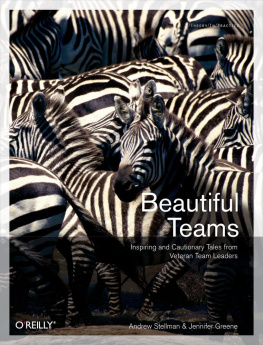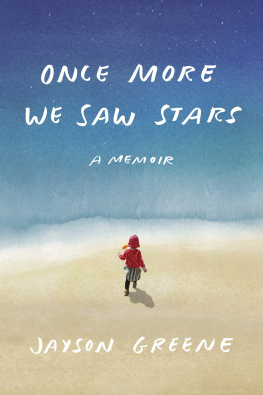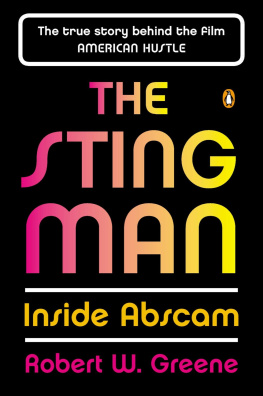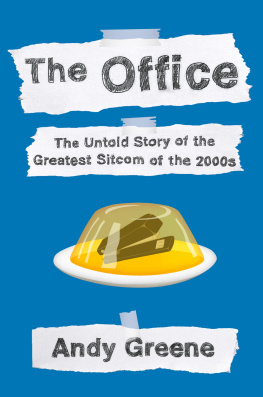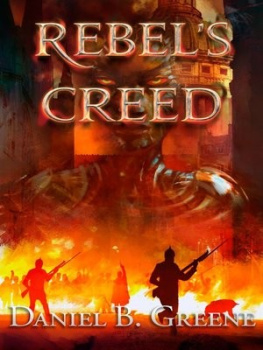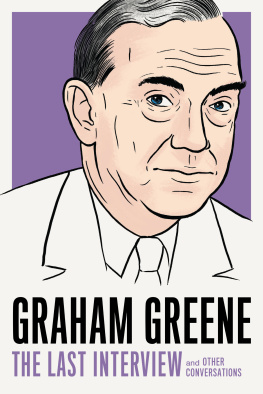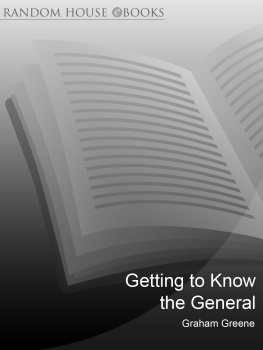Greene - Duty
Here you can read online Greene - Duty full text of the book (entire story) in english for free. Download pdf and epub, get meaning, cover and reviews about this ebook. year: 2006;2014, publisher: HarperCollins e-Books, genre: Detective and thriller. Description of the work, (preface) as well as reviews are available. Best literature library LitArk.com created for fans of good reading and offers a wide selection of genres:
Romance novel
Science fiction
Adventure
Detective
Science
History
Home and family
Prose
Art
Politics
Computer
Non-fiction
Religion
Business
Children
Humor
Choose a favorite category and find really read worthwhile books. Enjoy immersion in the world of imagination, feel the emotions of the characters or learn something new for yourself, make an fascinating discovery.

- Book:Duty
- Author:
- Publisher:HarperCollins e-Books
- Genre:
- Year:2006;2014
- Rating:3 / 5
- Favourites:Add to favourites
- Your mark:
- 60
- 1
- 2
- 3
- 4
- 5
Duty: summary, description and annotation
We offer to read an annotation, description, summary or preface (depends on what the author of the book "Duty" wrote himself). If you haven't found the necessary information about the book — write in the comments, we will try to find it.
Greene: author's other books
Who wrote Duty? Find out the surname, the name of the author of the book and a list of all author's works by series.
Duty — read online for free the complete book (whole text) full work
Below is the text of the book, divided by pages. System saving the place of the last page read, allows you to conveniently read the book "Duty" online for free, without having to search again every time where you left off. Put a bookmark, and you can go to the page where you finished reading at any time.
Font size:
Interval:
Bookmark:
A FATHER, HISSON,
AND THE MAN WHO
WON THE WAR

For Tim Greene
The morning after the last meal I ever ate with
It wasnt the first time I had tried. In fact
Do people know my name? Tibbets asked.
The airplane, he said, had been named in honor of
Before I left Tibbets that day, I told him the
The sole trip out of Columbus that my father and
With all the back-and-forth during the months of my fathers
Theres a General Something waiting for you in the lounge.
The diploma was on the wall of the spare bedroom
I dropped Baby Ruths, Tibbets said.
We stayed late that night. I would ask him questions
When you are a child, you think your father can
The movieblack-and-whitestarred Robert Taylor in the role of Colonel Paul
Sometimes, when I was very young, my father would pick
I was having lunch with Tibbets on a Friday afternoon.
I had seen a news item about an old sports
My father felt the same way about drivers on the
Business is not a war and it never has been
I dont know if my father even heard the power
That day went smoothlyand later, when I told Tibbets about
Tibbets wasnt the only one who seemed almost constitutionally incapable
Sometimes when I was a kid, Id make those model
My fathers best friendsthe men with whom he had been
I flew from Chicago to St. Louis, where I would get
As much as I washed my hands, I couldnt get
Friday morning was the time that had been set for
On my walk the next morning I found myself in
For our last day in Branson, Tibbets had planned a
My fathers voice, on the tape he gave to us
T hemorning after the last meal I ever ate with my father, I finallymet the man who won the war.
It was from my father that I had first heard aboutthe man. The eventthe dropping of the atomic bomb onHiroshimaI of course knew about; like all children of thepost-World War II generation, my classmates and I had learned aboutit in elementary school.
But the fact that the man who dropped thebombthe pilot who flew the EnolaGay to Japan, who carried out the single most violent act inthe history of mankind and thus brought World War II to anendthe fact that he lived quietly in the same town where Ihad grown upthat piece of knowledge came from my father.
It was never stated in an especially dramatic way.My dad would come home from workfrom downtown Columbus, incentral Ohioand say: I was buying some shirts today,and Paul Tibbets was in the next aisle, buying ties.
They never met; my father never said a word to him.I sensed that my father might have been a little reluctant, maybeeven a touch embarrassed; he had been a soldier with an infantrydivision, Tibbets had been a combat pilot, all these years hadpassed since the war and now here they both were, twoall-but-anonymous businessmen in a sedate, landlocked town in acountry at peacewhat was my dad supposed to say? How was hesupposed to begin the conversation?
Yet there was always a certain sound in his voiceat the dinner table. Paul Tibbets was in the next aislebuying ties. The sound in mydads voice told meas if I needed remindingthatthe story of his life had reached its most indelible and meaningfulmoments in the years of the war, the years before I was born.
T hosedinner-table conversations were long ago, though; they were in theyears when my dad was still vital, in good health, in the prime ofhis adult years, not yet ready to leave the world. I had all butforgotten the conversationsat least the specifics of them,other than the occasional mentions of Tibbets.
Now my dad was dying. We had dinner in hisbedroomhe would not, it would turn out, again be able to sitin a chair and eat after this nightand the next morning Itold him that I had somewhere to go and that I would be back in afew hours, and I went to find Paul Tibbets. Something told me thatit was important.
I twasnt the first time I had tried. In fact, I had beenattempting on and off to talk with Paul Tibbets for more thantwenty years.
I had left Columbus to become a newspaperman inChicago when I was in my early twenties; as I became a reporter,and then a syndicated columnist, I traveled around the world insearch of stories, and, as most reporters do, met any number ofwell-known people as I pursued those stories. As often as not, thepeople were only too willing to talk; celebrity is embraced by mostupon whom it is bestowed, even those who protest that it is abother. Whether a famous athlete or an ambitious politician or amovie star or a newsmaker just feeling the spotlights heatfor the first time, the people who get a taste of fame often seemto crave it in a way that can fairly be described as addictive.There can never be enough; when the light turns away for even asecond or two, some of the most famous men and women in the worldseem almost to panic. They need to feel it constantly.
Which is what made me so curious about PaulTibbets. He had been the central figure in the most momentous eventof the Twentieth Century; what he had done changed the world inways so profound that philosophers and theologians will bediscussing and debating it as long as mankind exists. Theman who won the war, of course, is shorthandno oneperson accomplished that. But it is shorthand based onfactTibbets was the man put in charge of preparing atop-secret military unit to deliver the bomb, he was the person whoassembled and trained that unit, and when the time came to do whathad never in the history of mankind been done, tofly an atomic bomb over an enemy nation and then drop the bomb on acity below, Tibbets did not delegate. He climbed into the cockpitand flew the bomb to Japan.
But he was seldom spoken about; the war ended in1945, and by the 1960s his was a name that few people seemed evento know. Part of this was doubtless because of the deep ambivalencemany Americans felt about the end of the war. Yes, they weregrateful that it had ended, and that the United States and theAllies had won. But the death and devastation from thebombthe unprecedented human suffering caused by theunleashing of the nuclear firewas something that peopleinstinctively chose not to celebrate. Hiroshima was not the stuffof holidays.
So I would hear my father talk of seeing PaulTibbets here and there in Columbus, and when I was a young reportermy journalistic instincts were to try to speak with him, to securean interview. By this timeby the early 1970sTibbetswas running a corporate-jet-for-hire service in central Ohio. Iwrote him letters, I left messages at his officenot justonce, but periodically over the course of two decades I tried. Inever received an answer. He didnt decline, he didntexplain, he didnt offer reasons. He simply didntrespond at all. Never. Not a word.
B y theautumn of 1998, my father had been dying for several months. It wasa word my family avoideddying was notsomething we said in his presence, or very often in the presence ofone anotherbut we all knew it, and I think he knew itbest.
I was covering a court case in Wisconsin, andduring a break I called my office in Chicago and the person whogave me the message was as careful as possible in how she told me:Your mother called and said your father has been taken tothe hospital, but she said to make sure to tell you itsnothing to panic about. She said theyre just taking a closelook at him.
Within days that had changed. My sister, who livedin Nevada, had flown to Columbus to help my mom.My father was home from the hospital, but he was not feeling strongenough to talk on the telephone. Another phone call from my sister:Daddy wants you boys to come.
Font size:
Interval:
Bookmark:
Similar books «Duty»
Look at similar books to Duty. We have selected literature similar in name and meaning in the hope of providing readers with more options to find new, interesting, not yet read works.
Discussion, reviews of the book Duty and just readers' own opinions. Leave your comments, write what you think about the work, its meaning or the main characters. Specify what exactly you liked and what you didn't like, and why you think so.

